If you're ready to harness the sun's power for your outdoor cooking adventures, you'll want a solar cooker that offers precise temperature control. The right built-in thermometer can make the difference between perfectly cooked meals and disappointing results. From portable camping solutions to hybrid electric models, today's solar cookers combine eco-friendly technology with accurate temperature monitoring. Let's explore four outstanding options that'll transform your outdoor cooking experience.
GOSUN Solar Oven Portable Stove PRO for Camping & Outdoor Cooking
The GOSUN Solar Oven Portable Stove PRO stands out as a compact powerhouse for solo adventurers and small families, reaching an impressive 550°F in full sunlight. At just 2 pounds and sized like a handbag, you'll find it incredibly portable for your outdoor adventures.
You can bake, roast, steam, and sauté meals in around 20 minutes, with the design ensuring even cooking and moisture retention. While it's perfect for single servings or feeding two small children, you might want to take into account larger models for bigger groups. The zipper design makes access easy, and the silicone trays simplify cleanup. It's ideal for propane-free cooking during camping trips or emergency situations.
Best For: Solo campers, hikers, and small families seeking a lightweight, portable solar cooking solution for outdoor adventures or emergency preparedness.
Pros:
- Extremely portable and lightweight at just 2 pounds with handbag-like design
- Reaches high temperatures (up to 550°F) and cooks meals quickly (20 minutes)
- No fuel needed – operates purely on solar power, making it eco-friendly and cost-effective
Cons:
- Limited cooking capacity – best suited for single servings or small portions
- Requires direct sunlight to function effectively
- Some users report issues with lid sealing and cooking greasy foods
Sungood Solar Cooker
Adventurous campers and eco-conscious cooks will appreciate Sungood's lightweight solar cooker, which packs down to a mere 34x24x4 cm and weighs just 950g. You'll find it heats up between 80°C to 150°C, perfect for cooking rice, vegetables, meat, and fish without fuel.
While you can assemble it in under a minute for beach, camping, or backyard cooking, be aware that it lacks English instructions. The package includes Sreflect mirrored reflectors, a cotton carrying bag, and two cooking bags. Despite mixed reviews about its durability, you'll find it useful for fuel-free cooking when there's ample sunlight.
Best For: Environmentally-conscious outdoor enthusiasts and campers who want a portable, fuel-free cooking solution and don't mind longer cooking times.
Pros:
- Ultra-lightweight and compact design (950g) with quick 1-minute assembly
- Completely eco-friendly with no fuel requirements
- Versatile cooking capabilities for various foods including rice, vegetables, meat, and fish
Cons:
- Lacks English instructions, making assembly and use potentially challenging
- Mixed reviews regarding durability and sturdiness
- Requires full sunlight and longer cooking times compared to traditional methods
GOSUN Fusion Solar Oven and Electric Grill Cooker
Outdoor enthusiasts seeking versatile cooking solutions will find the GOSUN Fusion Solar Oven a game-changing hybrid cooker. This lightweight 16-pound unit reaches temperatures up to 550°F, cooking meals in just 20 minutes under full sunlight while consuming only 150 watts when used electrically.
You'll appreciate its vacuum tube design that maintains heat efficiency, allowing you to bake, roast, steam, and sauté without constant monitoring. The 360-degree cooking chamber ensures even heat distribution, keeping food moist and flavorful. Whether you're camping, working off-grid, or preparing for emergencies, this portable cooker's durable construction and included accessories make it a reliable choice for outdoor cooking adventures.
Best For: Outdoor enthusiasts, campers, and off-grid adventurers who want a versatile, eco-friendly cooking solution that combines solar and electric power for reliable meal preparation anywhere.
Pros:
- Hybrid solar-electric design offers reliable cooking in any weather condition while using minimal power
- Impressive temperature range up to 550°F with quick 20-minute cooking times in optimal conditions
- Lightweight and portable at 16 pounds with included carrying case and accessories
Cons:
- Some quality control issues reported with scratches and improper fitting parts
- Longer cooking times (2-3 hours) when sunlight conditions aren't optimal
- Higher price point compared to traditional portable cooking solutions
Coleman Portable Camping Oven with Thermometer
Versatile campers seeking reliable outdoor baking capabilities will appreciate Coleman's portable camping oven, which transforms standard camp stoves into functional baking stations. You'll find its aluminized steel construction durable and corrosion-resistant, while the adjustable 10-square-inch rack offers three height positions for various baking needs.
The built-in thermometer lets you monitor temperatures accurately, ensuring your pastries, muffins, and biscuits bake evenly. When you're done, the oven folds flat for easy transport. While it's not solar-powered, it's highly rated by users who've successfully baked in various weather conditions. For best results, consider adding a baking stone to enhance heat distribution.
Best For: Camping enthusiasts and outdoor cooks who want to enjoy fresh-baked goods while camping and have a compatible Coleman camp stove.
Pros:
- Folds flat for easy storage and transportation
- Features adjustable rack heights and built-in thermometer for precise baking
- Durable aluminized steel construction with scratch and corrosion resistance
Cons:
- Requires a Coleman camp stove to function (not standalone)
- Some users report uneven heat distribution without additional modifications
- Limited cooking space with only 10 square inches of rack area
Factors to Consider When Choosing a Solar Cooker With Built-In Thermometer
When you're shopping for a solar cooker with a built-in thermometer, you'll need to evaluate essential features like maximum temperature range, cooking capacity, and overall portability to match your specific needs. Your choice should account for the cooker's heat distribution efficiency, which directly impacts cooking performance and energy usage. Additionally, you'll want to check the weather resistance features, as these determine how well your solar cooker will perform in various outdoor conditions and how long it will last.
Maximum Temperature Range
Understanding a solar cooker's maximum temperature range is essential for making the right purchase decision. The best models can reach up to 550°F (288°C) in full sunlight, giving you the flexibility to bake, roast, and steam your favorite dishes.
You'll want to look for a solar cooker that can consistently maintain temperatures between 80°C and 150°C, as this range is ideal for most cooking needs. The cooker's design and insulation quality will directly impact its ability to reach and maintain these temperatures. If you're planning to bake bread or roast meats, you'll need a model that can achieve higher temperatures. Remember that a higher maximum temperature range won't just expand your cooking options – it'll also help reduce your cooking time and improve overall efficiency.
Cooking Capacity and Size
Selecting the right cooking capacity is essential when investing in a solar cooker with a built-in thermometer. You'll need to evaluate how many people you're planning to feed and your available space for both setup and storage.
If you're cooking for yourself or a small family, a compact solar cooker that handles single servings might be sufficient. However, if you regularly prepare meals for larger groups, you'll want to opt for a bigger model that can accommodate multiple dishes simultaneously. Keep in mind that larger units offer more cooking flexibility but require additional space.
Consider the cooker's portability, especially if you're planning to use it for camping or outdoor activities. While built-in thermometers help guarantee proper cooking across all sizes, you'll want to balance capacity needs with practical storage and transportation requirements.
Portability and Weight
Three key mobility factors – weight, size, and design – play essential roles in choosing a portable solar cooker with a built-in thermometer.
You'll want to look for models weighing under 5 pounds, as they're easier to carry during outdoor activities like camping and hiking. Select a cooker with a compact, foldable design that you can assemble in under a minute, allowing you to start cooking quickly without complicated setup.
Built-in carrying bags and handles make transport and storage considerably more convenient, so prioritize models with these features. While smaller dimensions enhance portability, you'll need to balance this against your cooking capacity needs. Consider how you'll use the cooker most often – if you're frequently on the move, a lightweight, compact model might be worth the trade-off in cooking space.
Heat Distribution Efficiency
While portability gets you outdoors, heat distribution determines how well your solar cooker performs in the field. You'll want to look for models that incorporate reflective surfaces, as they effectively direct sunlight into the cooking chamber and create more uniform heating throughout your food.
Pay attention to the cooking chamber's design and insulation quality. A well-insulated chamber maintains consistent temperatures and prevents heat loss, which can reduce your cooking time to as little as 20 minutes in ideal conditions. The built-in thermometer is essential for monitoring internal temperatures, ensuring your meals are cooked safely and thoroughly. Whether you're baking bread or preparing meat, you'll need accurate temperature readings to achieve the best results. Choose a cooker that combines these features for the most efficient heat distribution and reliable cooking performance.
Weather Resistance Features
When choosing a solar cooker for outdoor cooking, you'll need robust weather resistance features to guarantee consistent performance in unpredictable conditions. Look for models with waterproof and windproof designs that'll protect your cooking process regardless of the weather.
Consider solar cookers built with durable aluminum construction, as they offer superior resilience against harsh elements while maintaining peak cooking efficiency. You'll want a model that performs well in both summer and winter temperatures, preferably one with thermal insulation to retain heat during colder days.
Don't overlook the importance of quick assembly features. You'll appreciate being able to set up your cooker rapidly when the weather's uncertain, allowing you to maximize available sunlight. These practical design elements assure you can rely on your solar cooker throughout the year, regardless of challenging weather conditions.
Assembly Time Required
Since time efficiency matters in outdoor cooking, a solar cooker's assembly speed should factor into your purchasing decision. You'll want to look for models that advertise quick setup times, particularly those claiming one-minute assembly. These fast-assembly designs typically come with fewer components, reducing the risk of lost parts and complicated instructions.
Before making your purchase, check user reviews specifically mentioning setup experiences. You'll get real-world insights into how easily the cooker comes together, especially important if you're planning to use it in emergency situations. Don't let a complex assembly process discourage you from using your solar cooker when you need it most. The best models balance efficient setup with reliable performance, ensuring you'll spend less time assembling and more time cooking.
Frequently Asked Questions
How Do I Clean and Maintain My Solar Cooker's Built-In Thermometer?
You'll need to gently wipe the thermometer with a soft, damp cloth after each use. Don't submerge it in water or use harsh cleaners. Check regularly for accuracy and replace if readings become inconsistent.
Can Solar Cookers With Built-In Thermometers Be Used During Winter?
Yes, you can use solar cookers with thermometers in winter, but you'll need direct sunlight and longer cooking times. It's best to cook during peak sun hours and protect your cooker from cold winds.
What Happens if the Built-In Thermometer Breaks or Malfunctions?
If your built-in thermometer breaks, you'll need to use a separate cooking thermometer to monitor temperatures. Don't let a faulty thermometer stop you – just make sure you're tracking heat levels for food safety.
Are Solar Cooker Thermometers Accurate at High Altitudes?
You'll need to adjust for altitude since thermometers can be less accurate at higher elevations. It's best to add about 1 degree Fahrenheit for every 500 feet above sea level for accurate readings.
How Often Should the Built-In Thermometer Be Calibrated for Accuracy?
You'll want to calibrate your built-in thermometer every 3-6 months for best accuracy. If you're using it frequently or notice temperature discrepancies, check it monthly using the ice water and boiling water method.
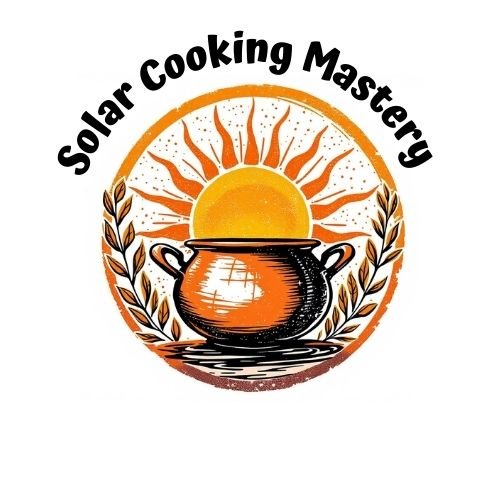
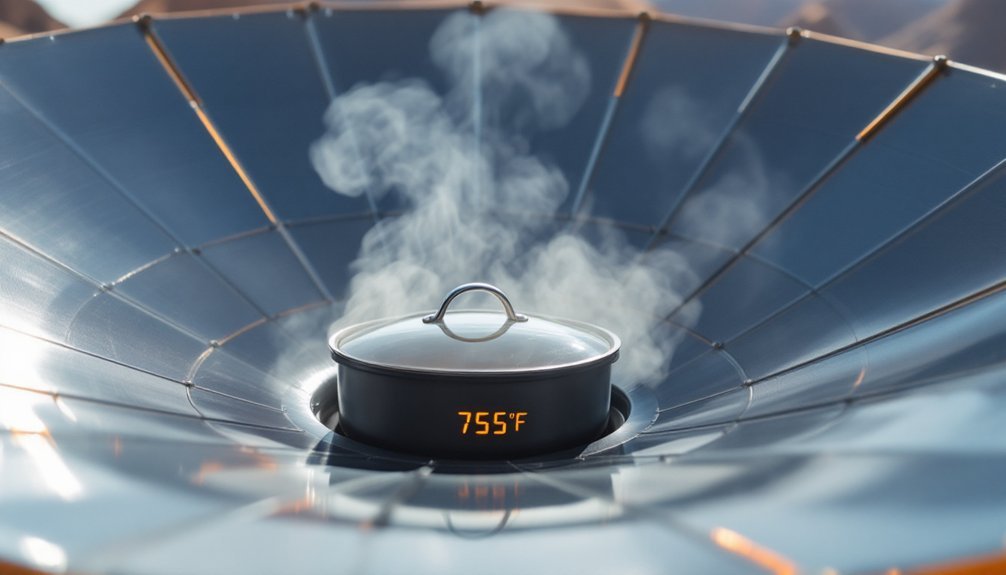
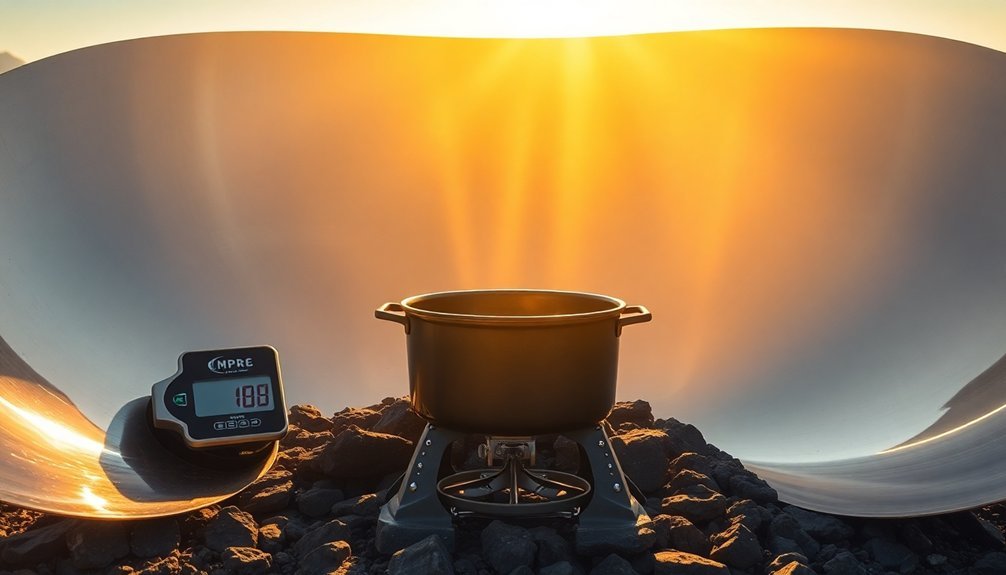
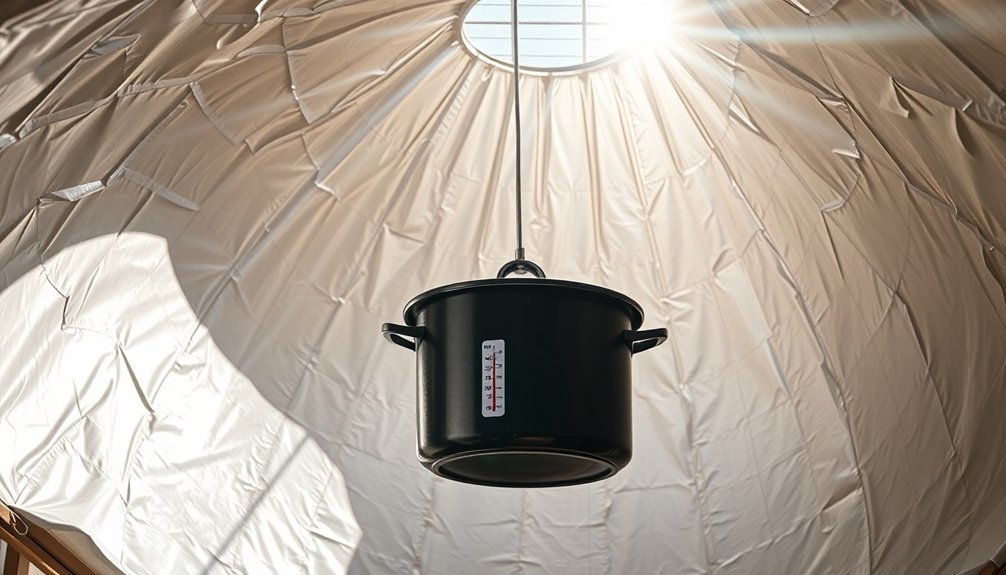
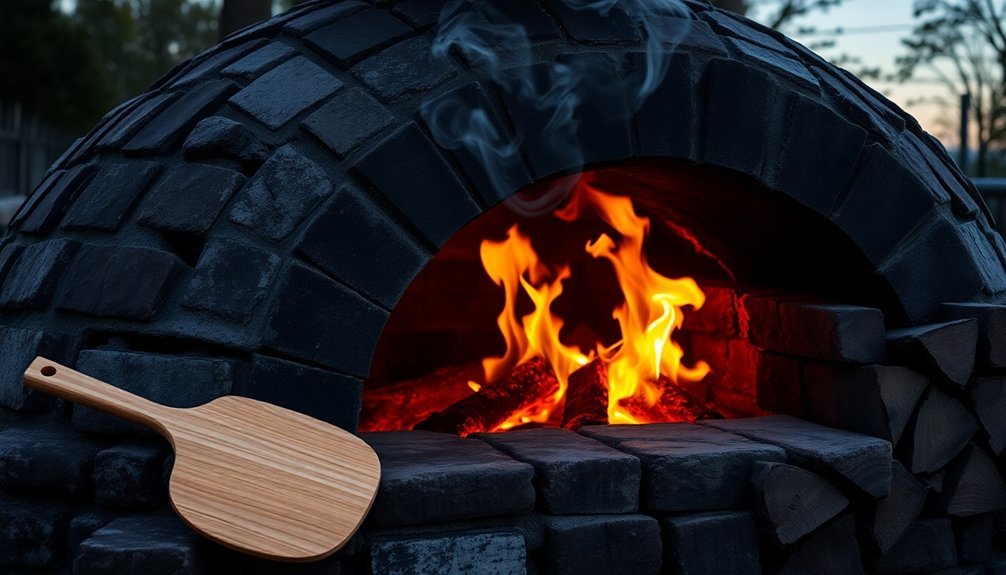
Leave a Reply